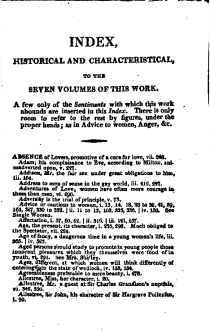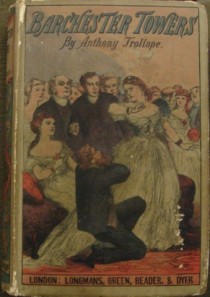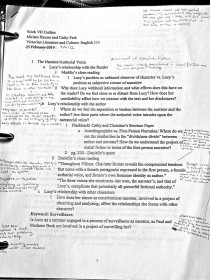Posts Tagged 'Maddie'

Novels with Footnotes and Indexes
Related to Christina’s recent post and to Sierra’s post on footnotes in Hard Cash, this bibliography by William Denton of (mostly 20th century) novels with footnotes and novels with indexes; in addition it has a good bibliography of writing on

Novels with Footnotes and Indexes
Related to Christina’s recent post and to Sierra’s post on footnotes in Hard Cash, this bibliography by William Denton of (mostly 20th century) novels with footnotes and novels with indexes; in addition it has a good bibliography of writing on
The Voysey Inheritance
While reading Hard Cash, I was reminded of the Granville-Barker play, The Voysey Inheritance. Although written over 40 years after Hard Cash was published, the play deals with the same issues of financial ruin, the family, and encroaching insanity. In
The Voysey Inheritance
While reading Hard Cash, I was reminded of the Granville-Barker play, The Voysey Inheritance. Although written over 40 years after Hard Cash was published, the play deals with the same issues of financial ruin, the family, and encroaching insanity. In
Week 4
Cathy’s paper: What happens when the narrator in question is supposedly representing the actual story of the author, not ‘fiction?’ Is the authorial intent still relevant in interpreting the work? Reading Oliphant’s autobiography, a reader is presented with numerous instances that seem to question the supposed divide between the author and the narrator or internal evidence versus external evidence.
Week 4
Cathy’s paper: What happens when the narrator in question is supposedly representing the actual story of the author, not ‘fiction?’ Is the authorial intent still relevant in interpreting the work? Reading Oliphant’s autobiography, a reader is presented with numerous instances that seem to question the supposed divide between the author and the narrator or internal evidence versus external evidence.

Week 2
“When I read Trollope, it is all I can do not to be bored. All I can do, because Trollope always seems a little bored himself.” (Miller, Chapter 4, p.145)
